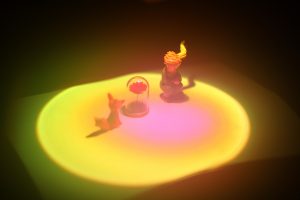When we realize we have the freedom to make decisions that shape our lives, including how we manage our time, it becomes easier to accept responsibility for our choices
BLOG
A path to yourself – Building relationships

Ida Protuger
RELATED
Does the flat organizational structure offer greater well-being?
We live in a time of intense change, where artificial intelligence and technological advancements are transforming the world overnight. This new reality is referred to as a BANI world, characterized as: Brittle Anxious Nonlinear Incomprehensible The BANI world...
Emotions and Leadership: Don’t suppress – learn how to express
Leaders are often burdened with negative emotions and unmet needs, just like everyone else. By mastering EI, particularly emotional regulation, leaders can promote a thriving, results-driven corporate culture.
A group of porcupines was freezing in the middle of winter. So they got closer to each other to keep warm, but then their spikes began to hurt them, so they had to move away from each other.
They were again freezing and needed the warmth of others, so they started to get closer to each other, but again the pain made them move away. So they moved closer and further away until they found a comfortable distance that didn’t cause them much pain and offered warmth.
Intimacy dilemma
The story’s title is “Porcupines Dilemma,” and Schopenhauer used it to explain intimacy challenges, concluding that closeness is impossible without mutual hurt.
Schopenhauer is known for his ambiguity regarding love, but the dilemma is worth pondering.
How “close” is close enough, and how much distance is considered “healthy” for one’s individuality?
Is it possible to belong while still protecting our authenticity?
How far can we give ourselves to another, and how much can we trust the other part that they will not abuse our “vulnerability” created by our emotions?
Born alone but designed to live with others to survive, we humans are constantly torn by the emotional need to protect our authenticity, and the equally strong need for the other, for love, validation, and belonging.

The need for validation is an essential human psychological need. But sometimes, the person constantly seeks validation from others instead of themself. In that case, they will be under constant pressure to please, to satisfy the needs and criteria of others.
Authonomy VS togetherness
A community, be it a partnership, a family, a company, or a nation, has its own authentic and unique identity. It arises from the synergy between two or more persons, their characters, needs, and individualities, and through exchanging ideas, emotions, and information.
Self-exploration helps us develop our autonomy by being aware of our emotions, the needs behind those emotions, our values, what we expect from relationships, and what we want to give (invest) to others to feel we belong.
Recognizing own emotions, the needs behind them, and self-care are essential for nurturing own authenticity. It is also the basis for building quality relationships with others. To venture into intimacy but not lose ourselves.
An example where people only draw confirmation of themselves through others and identify mainly with the partnership is in the so-called “symbiotic” relationships. There is no individualism but only togetherness, which is risky because one could lose its own identity.
On the other hand, if we only focus on ourselves and our own needs, we will again not be able to establish healthy relationships. Togetherness means nurturing relationships and caring for the other person.
The meaning of bonding
A beautiful illustration of bonding is presented in Exupery’s book The Little Prince through the dialogue between the Little Prince and the fox.

The prince tells the fox he wants to be friends with her, but she immediately replies that this is impossible because she is not tamed.
He asks her what taming is, and she tells him that taming is when people get close. They will meet regularly at a precise time of the day. That way, he will become a special person (thing) to her and vice versa. So that they will look forward to every meeting, they will need each other. The fox says even if the relationship ends sadly, “the yellow fields will always have a special meaning to me because they will remind me of your hair.”
People, especially those who support us as individuals, are essential resources in our lives. Therefore, nurturing relationships with those who matter to us is a significant factor in personal happiness and well-being.
Healthy relationships are those in which a person can develop their authenticity and grow while simultaneously being a part of a community (togetherness).
